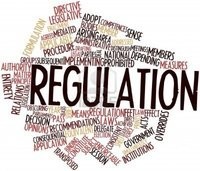The US Food and Drug Administration (FDA) announced on 11 December 2018 that it had released four guidance documents and a proposed rule on the definition of a ‘biological product’.
The documents have been released as part of measures aimed at advancing new policies to promote more competition when it comes to biosimilars.
The agency released its Biosimilars Action Plan in July 2018, which plans to improve the efficiency of the biosimilar and interchangeable product development and approval process. FDA approved a record number of biosimilars in 2017 – seven – bringing the number of approved biosimilars in the US to 15 [1]. The agency also says that it currently has more than 60 biosimilar development programmes ongoing.
FDA says by issuing the new guidance documents and proposed rule it is taking additional actions to advance this framework.
Questions and Answers on Biosimilar Development and the BPCI Act (Revision 1)
Date: December 2018
www.fda.gov/downloads/Drugs/GuidanceComplianceRegulatoryInformation/Guidances/UCM444661.pdf
Interpretation of the ‘Deemed to be a License’ Provision of the Biologics Price Competition and Innovation Act of 2009
Date: December 2018
www.fda.gov/downloads/Drugs/GuidanceComplianceRegulatoryInformation/Guidances/UCM490264.pdf
New and Revised Draft Q&As on Biosimilar Development and the BPCI Act (Revision 2) (draft guidance)
Date: December 2018
www.fda.gov/downloads/Drugs/GuidanceComplianceRegulatoryInformation/Guidances/UCM273001.pdf
The ‘Deemed to be a License’ Provision of the BPCI Act; Questions and Answers (draft guidance)
Date: December 2018
www.fda.gov/downloads/Drugs/GuidanceComplianceRegulatoryInformation/Guidances/UCM628115.pdf
Definition of the Term “Biological Product” (proposed rule)
Date: December 2018
www.federalregister.gov/documents/2018/12/12/2018-26840/definition-of-the-term-biological-product
According to FDA, the first two guidance documents provide greater clarity on scientific and regulatory considerations for the development of biosimilar and interchangeable products.
In particular, the agency says it has addressed the issue of misuse of Risk Evaluation and Mitigation Strategy (REMS) programmes [2]. Some originator companies have used this strategy in the past to prevent biosimilar makers gaining samples of the originator biological needed for testing to support their applications for a biosimilar product.
The agency has also released two critical guidance documents that describe how the agency plans transition certain biological products currently approved as drugs to be licensed as biologicals. This change affects a small subset of ‘biological products’, such as insulin and human growth hormone, which for complex historical reasons were previously generally approved as drugs, but from March 2020 will be deemed to be biologicals. The final and draft guidance describe how FDA intends to accomplish the transition of these products under the ‘Deemed to be a License’ provision of the Biologics Price Competition and Innovation of 2009 (BPCI Act),
FDA also clarified that products reclassified as biologicals will not receive the 12-year exclusivity period afforded to newly licensed biologicals. In fact, once their patents and other protections have lapsed, these drugs will ‘be open to brisk competition from biosimilars’.
Finally, the proposed rule would amend FDA’s regulation that defines ‘biological product’ to make a technical revision and to conform to the statutory definition enacted in the BPCI Act.
Related article
Expediting FDA approvals for biosimilars
References
1. GaBI Online - Generics and Biosimilars Initiative. Biosimilars approved in the US [www.gabionline.net]. Mol, Belgium: Pro Pharma Communications International; [cited 2019 Jan 11]. Available from: www.gabionline.net/Biosimilars/General/Biosimilars-approved-in-the-US
2. GaBI Online - Generics and Biosimilars Initiative. REMS issues come under FDA spotlight [www.gabionline.net]. Mol, Belgium: Pro Pharma Communications International; [cited 2019 Jan 11]. Available from: www.gabionline.net/Generics/General/REMS-issues-come-under-FDA-spotlight
Permission granted to reproduce for personal and non-commercial use only. All other reproduction, copy or reprinting of all or part of any ‘Content’ found on this website is strictly prohibited without the prior consent of the publisher. Contact the publisher to obtain permission before redistributing.
Copyright – Unless otherwise stated all contents of this website are © 2019 Pro Pharma Communications International. All Rights Reserved.
Source: Federal Register, US FDA








 0
0











Post your comment